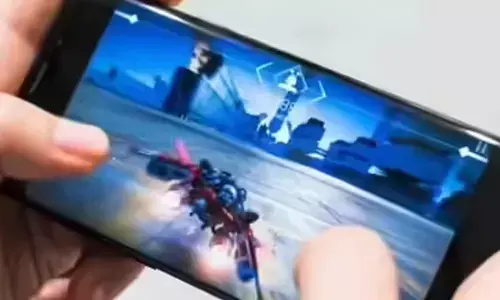Design education for new millennials

Design education for new millennials
“Design education is changing,” says the Design Guru Don Norman, Professor Emeritus, UC San Diego, and author of the famous book , ‘ Design of everyday things’
"Design education is changing," says the Design Guru Don Norman, Professor Emeritus, UC San Diego, and author of the famous book , ' Design of everyday things'. He further calls for a new paradigm in design education: "Design education has to move away from schools of art and architecture and move into the schools of science and engineering. We need new kinds of designers, people who can work across disciplines, who understand human beings, business, and technology and the appropriate means of validating claims."
The reason for this simple. Design itself is changing and evolving: from a predominantly form-giving activity to a strategic problem-solving one. Design thinking is the new mantra for innovation. Technology institutes and Management firms are seen to invest more and more in Design. Millennials are advised to understand the changing scenario of the profession, as they embark on the journey for a career in Design.
Design education is responsible
Students of Design must understand that the profession needs to be responsible. From a merely form giving activity that was creating aesthetically interesting products, the profession of Product Design is now contributing to sustainable living by innovating with materials, technology and processes. Products that end up in landfills are frowned upon. There is also this growing concern for planet-friendly products as opposed to user-friendly products that pollute the earth. Curriculums are therefore being transformed to include sustainable production processes, eco-friendly materials and design projects focus more on helping humankind than create wasteful products.
Design education gets generic
There was a time when specialisations were the norm. Industrial Designers went on to specialise in Product Design, which progressed into Interior Product Design, and further into Bathroom Designers! Such specialisations are not working any more. Customers are happy to deal with Interdisciplinary designers who are generalists who can tackle a plethora of problems straddling different specialisations. Progressive Universities like JKLU have included Interdisciplinary Design programmes to cater to this requirement.
Design education is getting digital
The pen has been sacrificed for the stylus. The paper for screens. Designers have gone completely digital. There is therefore, this need for an urgent revamping of the course contents to make digital learning, online classes and bite-sized inputs. Take for instance, a discipline like Communication Design. All new programmes have extensive emphasis on the digital way of learning.
Design education is about co-creation
Designers used to work in silos, developing new products and patenting their innovations. There is, however, a new breed of designers who are open and develop products that include all the stake holders of the project. Co-creation is gaining ground and copy-left is the new normal. Design schools are now getting the millennials to collaborate on digital platforms, working across time-zones and developing solutions collectively for the problems of the world.
Design education is multi-disciplinary
Designers who learn in special institutes dedicated to design, miss out a multi-disciplinary approach to problem solving. Inputs in sociology, psychology, finance and management make design professionals more ready for solving real-life problems. Critical thinking and systemic thinking processes are taught in new institutes of Design for making them develop into a well-rounded professional.
JKLU for future-ready education
The future of design is all pervading. It has to cater to all sectors of the economy. The divisions and specialisations are blurring. The world is shrinking and one can no more afford to work in silos.
Designers will be expected to take on leadership roles and have to become more disruptive and innovative, responsible and inclusive. They should learn to cultivate empathy to cater to the last individual. Sustainability will become the mantra for the future of design. Imagination will become paramount and creativity will be the key to solving world's problems.
The Institute of Design JKLU is ready for the challenge. New curriculums are embedded with Communication and Critical thinking classes. Interdisciplinary Design is an option for the generalist designer. Communication Design programme is predominantly digital. Co-creation is the norm, as students from Technology, Management and Design get together for classes and projects. We are poised to bring about a new paradigm in design education. One that is contemporary and relevant for the new millennials.
(The author is with JK Lakshmipat University, Jaipur)











